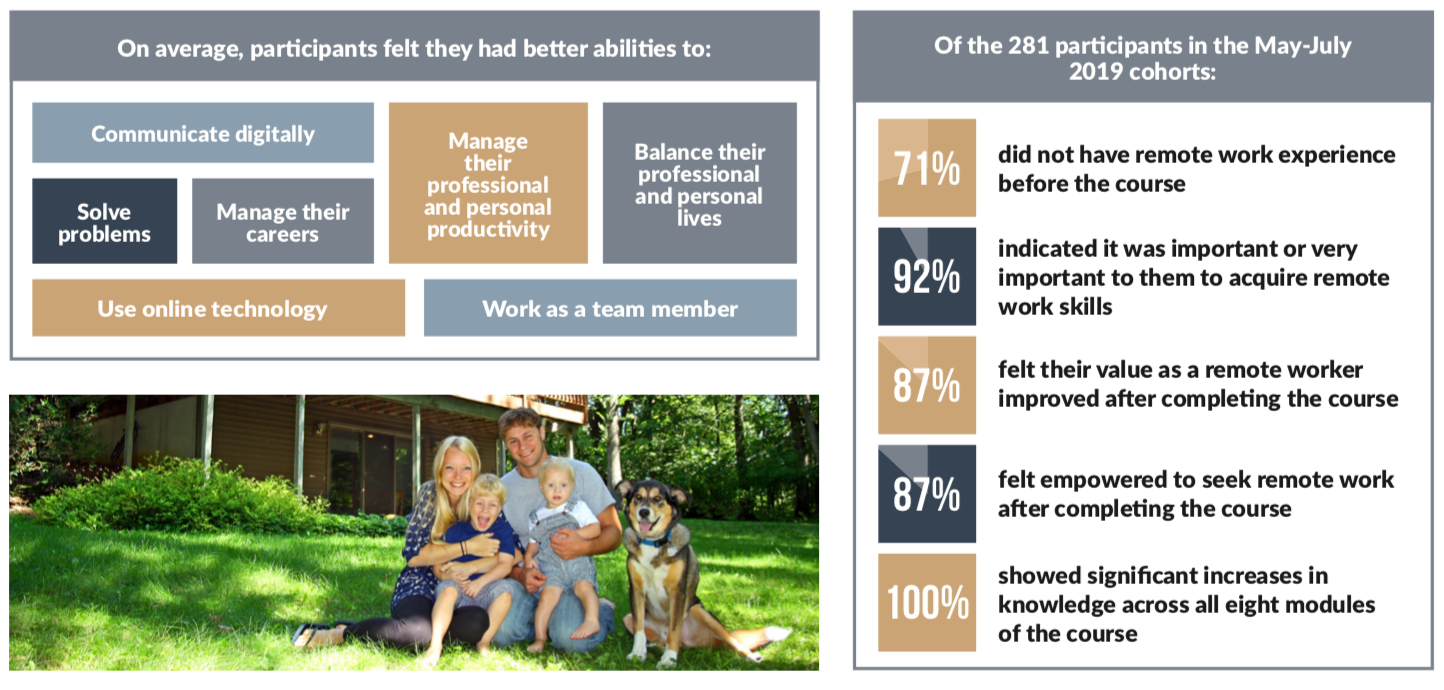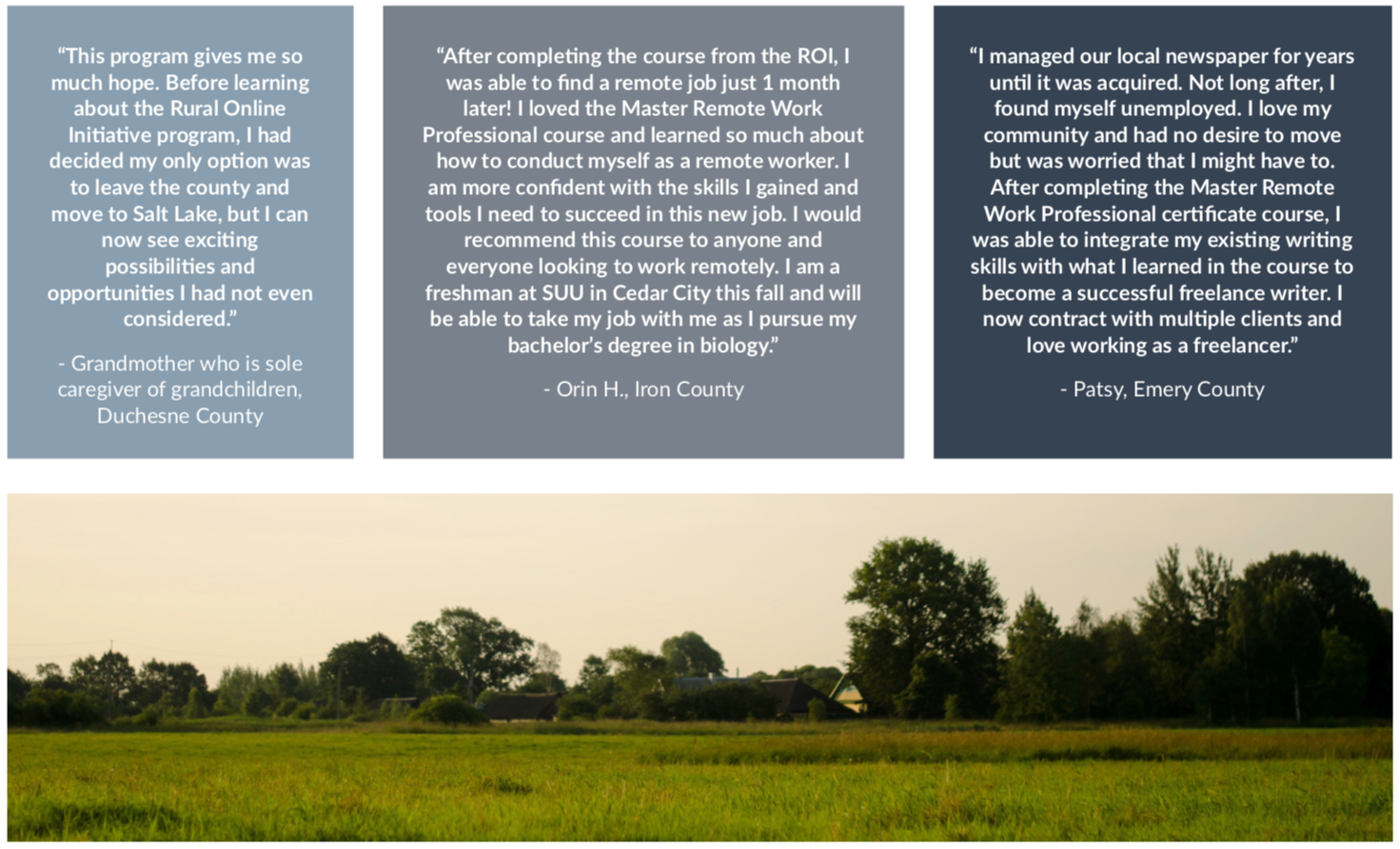Quick Guide to Extension Impacts: Finance
During the 2018 Utah General Legislative Session, the Rural Online Initiative (ROI) and the Rural Economic Development Incentive (REDI) were signed into law by Gov. Gary R. Herbert, changing the landscape of Utah’s rural economic development.
The focus of the ROI program is to provide Utah’s rural workforce and businesses with education, training, and services for online opportunities in remote employment, freelance work, and e-commerce. Funding for the ROI was appropriated to Utah State University Extension for program development and delivery across targeted rural counties. After 1 year, we have made measurable progress toward empowering rural communities through remote work.
Sincerely,
Paul Hill, USU Extension associate professor, principal investigator of ROI program funding
Amanda D. Ali, ROI program evaluator
Russell Goodrich, ROI senior program coordinator
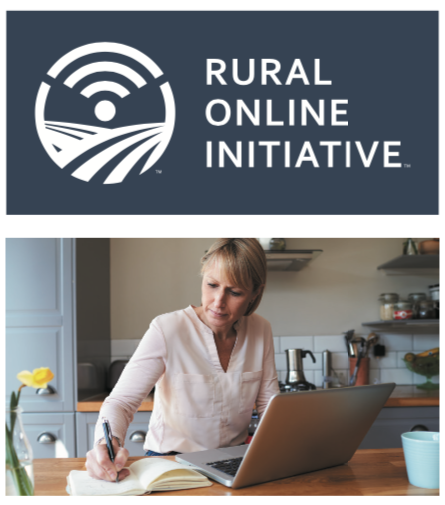

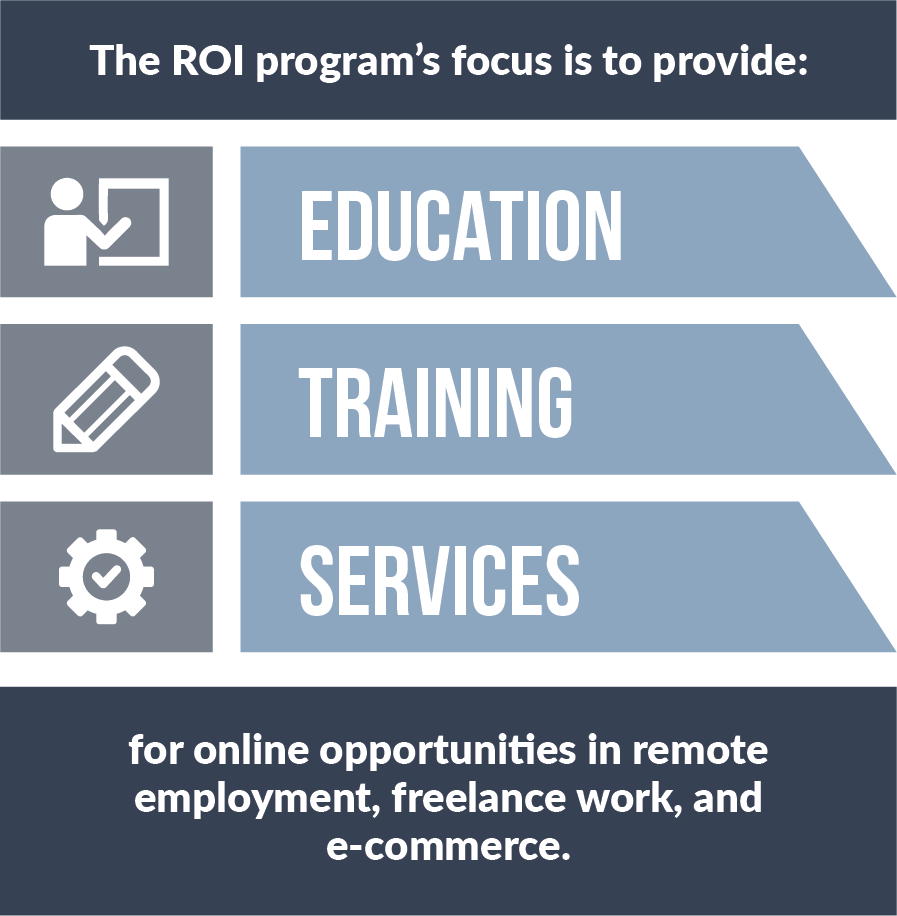
1. The Challenge
Utah’s economy has experienced steady growth in recent years; however, this prosperity has not been evenly distributed. In rural counties, the unemployment rate has been as high as 10% (GOED, 2017), and in most communities, the unemployment rate has been more than double the state unemployment average of 3% (Burkitt, 2017). Far commutes, access to job opportunities, and automation were employment challenges facing residents in rural Utah communities.

2. What Has Been Done?
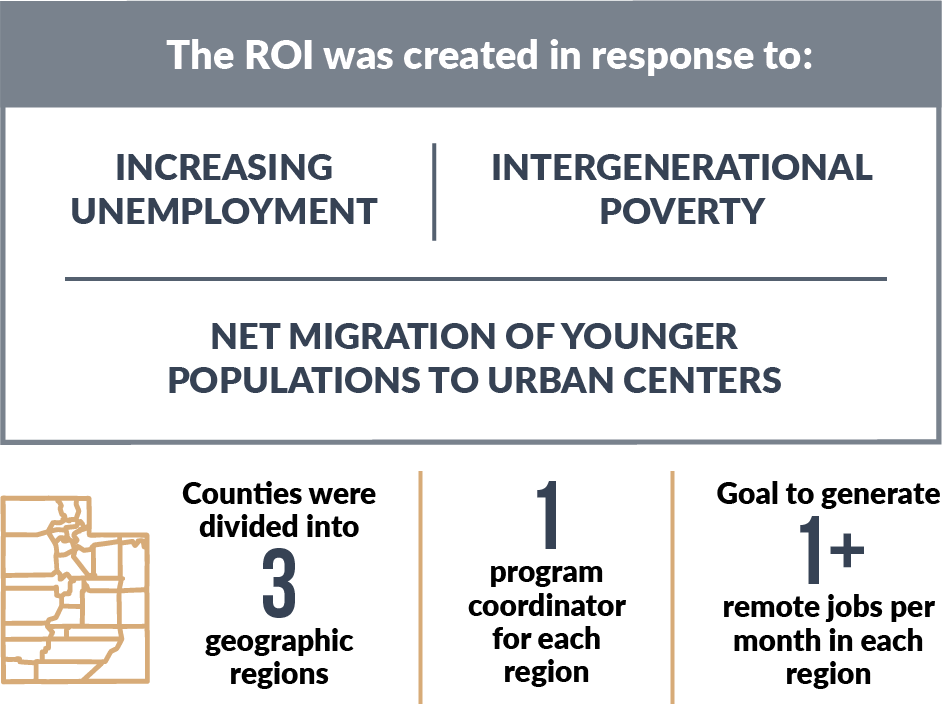
The Rural Online Initiative (ROI) program came about as a legislative response to increasing unemployment, intergenerational poverty, and net migration of younger populations to urban centers. Under the ROI program, USU Extension created the Master Remote Work Professional (MRWP) certificate course aimed at providing Utah’s rural workforce with education and training for online opportunities in remote employment.
The target counties in the legislated ROI service region were divided into three geographic regions, with an identified program coordinator for each region. A key employment goal for the program was to generate at least one remote job per month in each of the three regions, with an annual goal of 36 jobs generated in the first year.
3. Impact
A preliminary analysis provided unemployment statistics for the 15 counties within our service area. There was no change in the unemployment rate for Beaver, Daggett, Kane, Uintah, and Wayne counties.


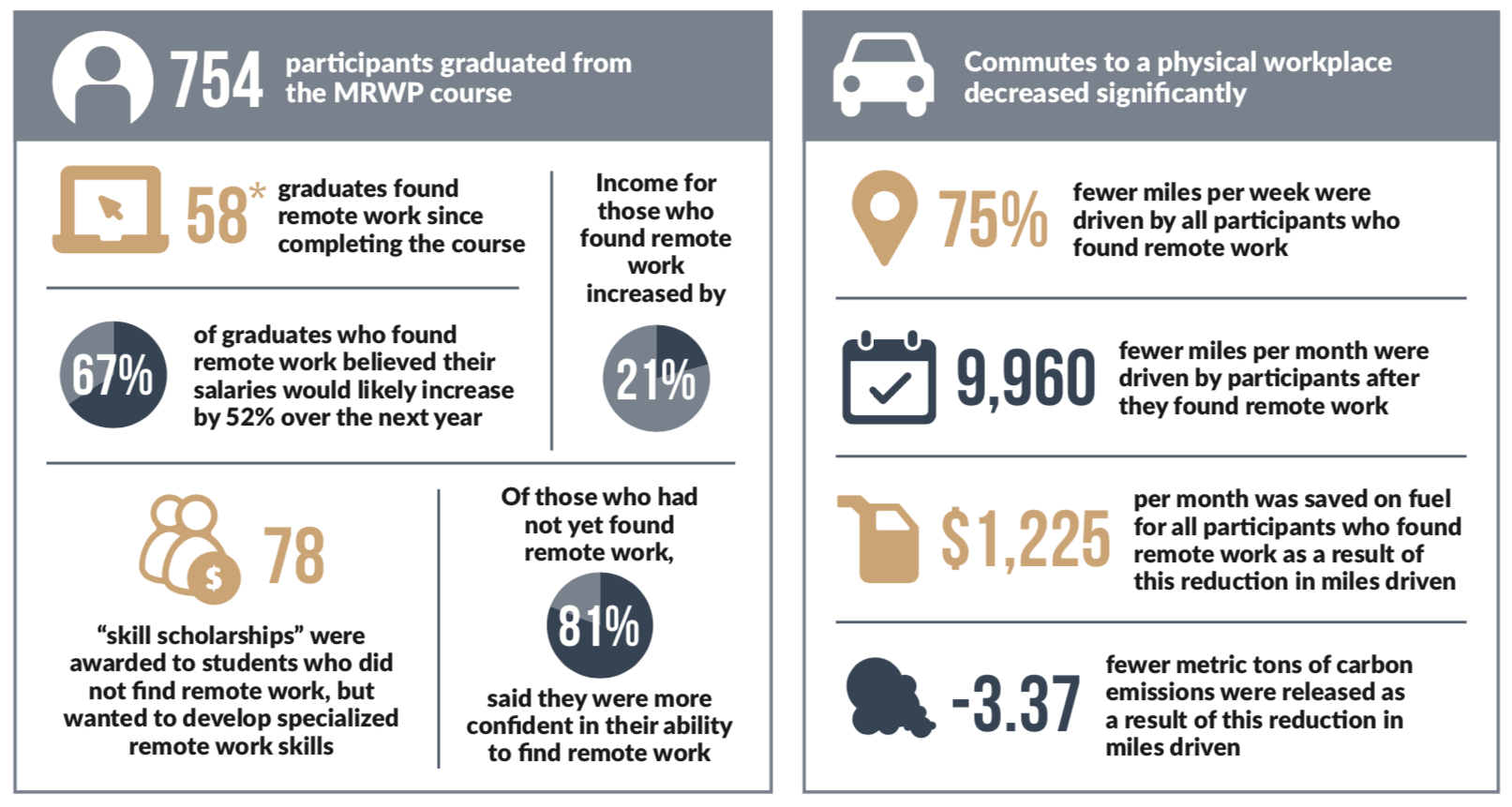
*The economic impact of creating these 58 remote jobs in rural counties is equivalent to 7,079 jobs in Wasatch Front counties (Source: Utah Department of Workforce Services 2016. Analysis based on the goal of reducing unemployment by 1⁄2%. Statistics based on county labor force current rate of unemployment and extrapolated number of jobs required.)
6. Program Expansion
In its first year, the ROI program has built out the infrastructure, systems, and key institutional partnerships needed to scale specialized remote work training courses statewide. Plans for the future include:

- Provide specialized remote work training to all rural counties. Currently, the pilot program serves 15 rural counties in the southern and central parts of the state.
- Expedite 25K jobs initiative. There is overwhelming interest in remote work opportunities across rural Utah, especially among females 25-40 years old with children. This demographic (previously not considered as part of the workforce) makes up 73% of ROI participation.
- Expand specialized remote work training to urban counties.
- Support State of Utah’s new teleworking program. This would support the Governor’s Office of Management and Budget (GOMB) by providing the Master Remote Work Professional certification course to state employees transitioning into the telework program. GOMB expects that this program will reduce carbon emissions via reduced commute times, lower the state’s expenditure on buildings, bring 200 state jobs to rural counties, retain employees, and improve worker productivity.
- Reduce traffic congestion and improve air quality. Fewer people commuting to a work location eases traffic woes and reduces traffic-induced air pollution.
- Reduce carbon emissions. Based on data from participants in rural counties who found remote work, households on average reduced the number of miles driven per week by 75%.
- Increase demand for GOED’s REDI grant program. Provide training to business leaders through the Master Remote Work Leader certificate course on how to manage remote employees and create remote jobs for certified remote workers in rural counties. Included in this certification course is training on how to qualify and apply for the Rural Economic Development Incentive (REDI) grant program.
- Increase supply of remote workers in rural co-working spaces funded by GOED’s RCIC grant. Train more people statewide in the best practices of remote work, thus increasing the use of co-working spaces funded by the Rural Co-working and Innovation Center (RCIC) grant program.


 Utah 4-H & Youth
Utah 4-H & Youth